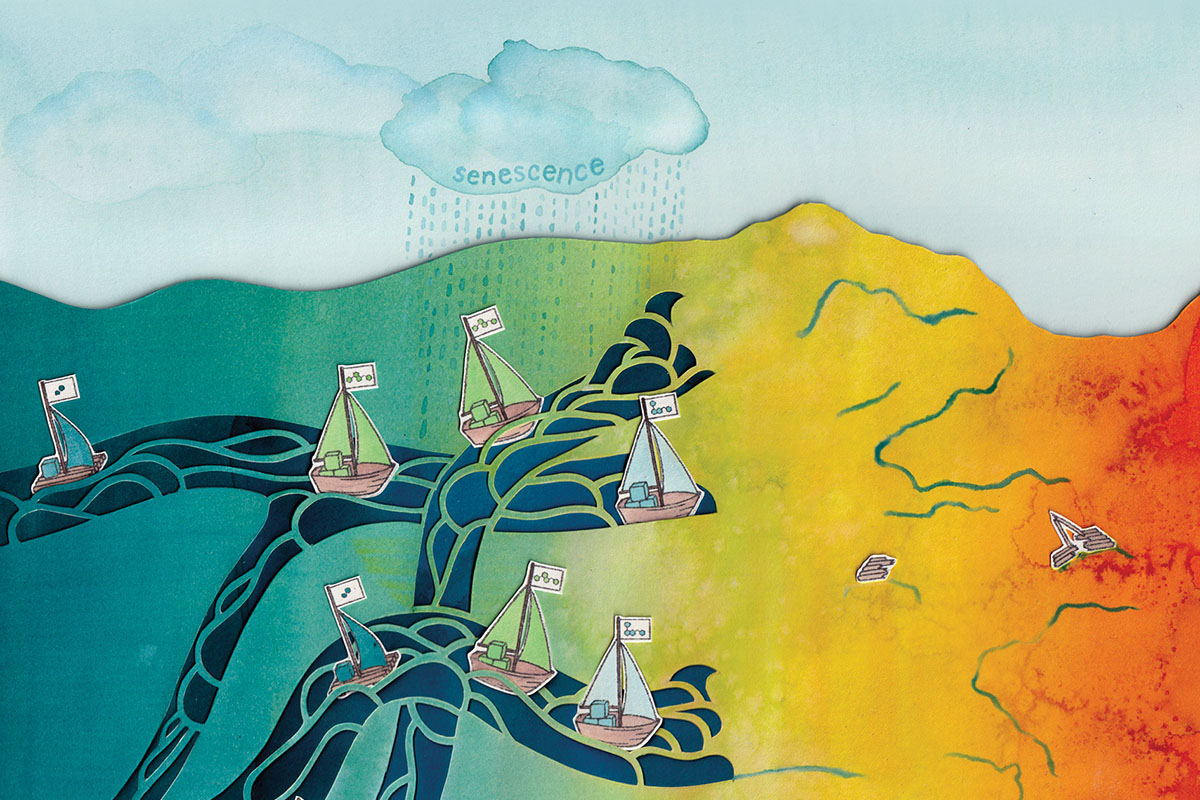
Pancreatic cancer is one of the most challenging cancers to treat. In part, that’s because pancreatic tumors tend to be surrounded by scar tissue. This dense layer prevents cancer medicines and cancer-fighting immune cells from penetrating to the interior.

A new study from Scott Lowe’s lab in the Sloan Kettering Institute, published March 31 in the journal Cell, provides evidence that a two-drug combination can make pancreatic tumors more sensitive to cancer-fighting medicines by breaching their defensive shell.
The two drugs, trametinib (Mekinist®) and palbociclib (Ibrance®), do not by themselves kill tumor cells. Instead, they trigger a state called senescence.
“We think of senescence as an alarm state,” says Marcus Ruscetti, a postdoctoral fellow in the Lowe lab and the paper’s first author. “Cells in this state emit SOS signals that recruit other cells to come in and repair damage.”
As part of this coordinated response, these SOS signals promote the growth of new blood vessels into the tumor. Normally, that would be a bad thing, since blood nourishes tumors. But in this case, the new blood vessels serve as highways for cancer medicines and immune cells — in particular, cytotoxic T cells that have been shown to kill tumor cells — to reach deep within.
The drug combination of trametinib and palbociclib greatly reduced the size of pancreatic tumors, when given along with either the chemotherapy drug gemcitabine (Gemzar®) or a PD-1-blocking immunotherapy. This result occurred in both mouse tumors and human tumors growing in mice. The treatment also dramatically increased how long the mice survived, the researchers found.
According to Dr. Lowe, the findings suggest a potential way to convert what’s known as a “cold” tumor — one not vulnerable to attack by the immune system — to a “hot” tumor that is.
“Doctors have been trying to poke holes in pancreatic cancer’s armor for a while now,” he says. “This slightly counterintuitive approach just might be one way to do it.”
The SKI researchers plan to work with doctors at Memorial Sloan Kettering to translate the new findings into clinical trials for people with pancreatic cancer.
The other authors on the paper are John Morris IV, Riccardo Mezzadra, James Russell, Josef Leibold, Paul B. Romesser, Janelle Simon, Amanda Kulick, Yu-Jui Ho, Myles Fennell, Jinyang Li, Robert J. Norgard, John E. Wilkinson, Direna Alonso Curbelo, Ramya Sridharan, Daniel Heller, Elisa de Stanchina, Ben Z. Stanger, and Charles J. Sherr.





